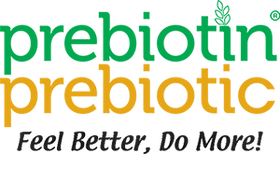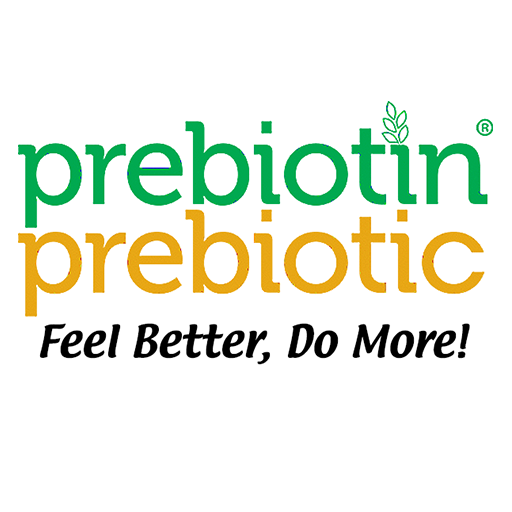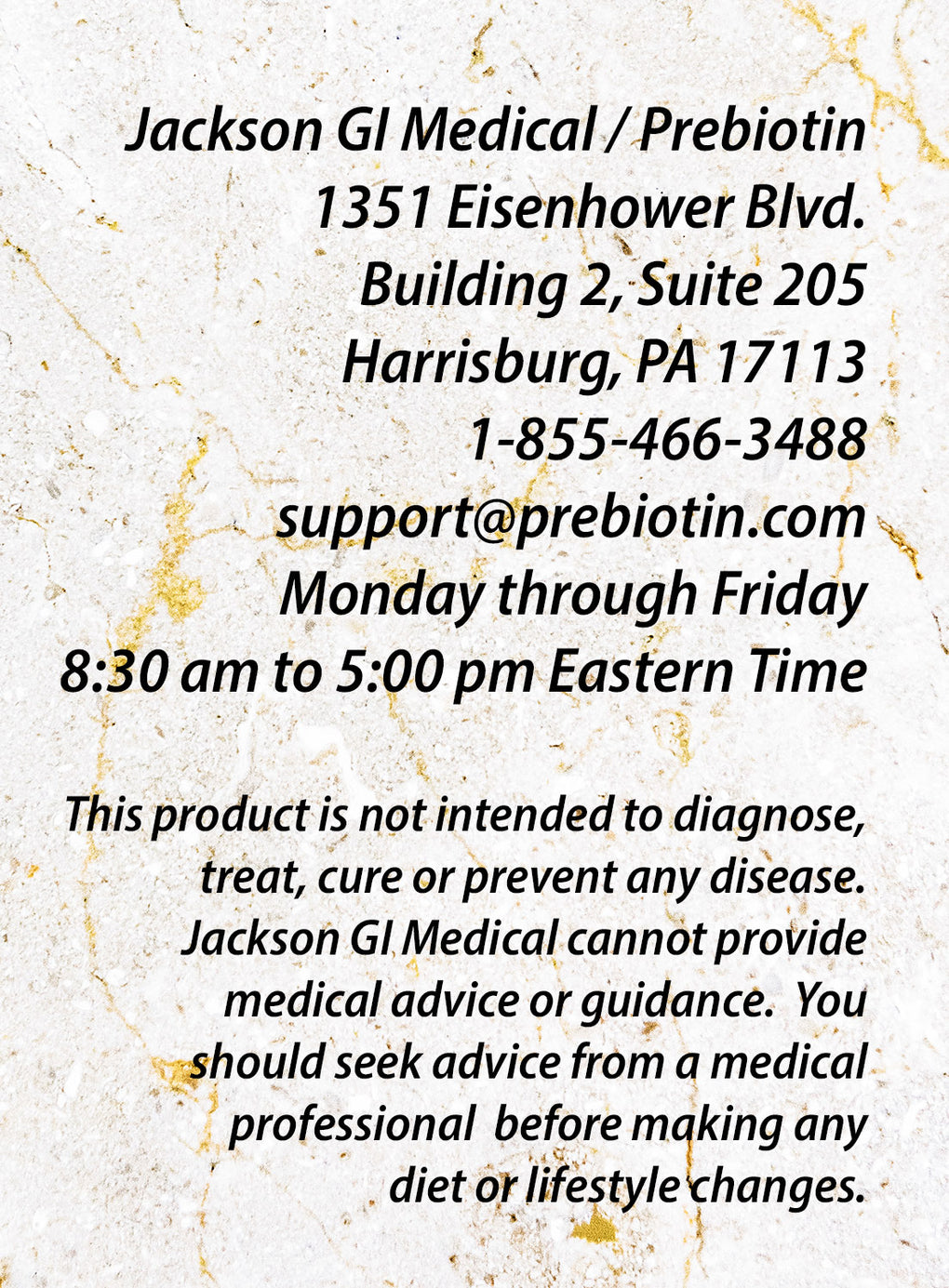Supporting the International Effort to Reduce Preventable Disease

Are you aware that poor diet kills more people than smoking? That everything we understand about protein is incorrect? Or that most of our most deadly diseases are preventable?
For factual information that can save our lives and promote better health, we can now turn to the True Health Initiative. This global coalition of more than 500 renowned experts are fighting “fake facts” to reduce preventable disease, with a focus on diet and lifestyle changes. The council is constantly “making headlines, writing the news, and pushing policy,” according to the THI website. Prebiotin has joined THI as a corporate partner.
The group was formed based on the compelling reality that most of our illnesses are linked to our diets and lifestyle. This includes the top diseases associated with 50% of deaths each year. In other words, most disease is preventable. Some facts that spurred the group to form:
- More than half of all deaths in the U.S. are from heart disease, cancer, and stroke.
- 70% of all Americans are obese or overweight.
- 80% of our healthcare costs are spent treating people with chronic diseases.
- More than 40% of Americans—that’s 130+ million people—are affected by chronic diseases.
- 70 million Americans have hypertension, with elevated risk for heart attack and stroke.

According to the True Health Initiative website, “If we don’t create enduring, sustainable change, we submit to a world where chronic disease and premature death are the norm, not the exception.”
There’s a better way…
Instead, the council has brought together specialists who can provide expertise for the public media. THI council members offer quotes, fact checking, or insight on a topic or article about the true impact of diet and lifestyle. THI also commissions research that fights false information about diets. Together, the group demonstrates that there is a global consensus on the fundamental, evidence-based truths of lifestyle as medicine. Individual members work with communities to create a healthier culture.

THI members are also taking leading roles in cutting-edge non-prescription approaches to these common disease conditions.
“For too long, we’ve used and overused drugs to manage chronic conditions and slow their progression,” says THI team member Dr. Richard Carmona, who served as the 17th U.S. Surgeon General, regarding his appointment to the board of Better Therapeutics, a new software program that reduces unnecessary healthcare utilization.
“What we need now is a much bolder approach; one focused on arresting and reversing disease by addressing the lifestyle choices that are at the root cause.” Currently, Dr. Carmona is Vice-Chairman at Canyon Ranch.
Prebiotin joins the cause
“We have a lot in common with an organization that promotes fundamental, evidence-based truths about lifestyle and health. At Prebiotin, we also provide information about improving gut health that has been vetted by researchers who publish in top medical and health journals. We are therefore excited to join this international effort to work with communities to create a healthier culture that helps people to live longer and more productively." — F. Wilson Jackson, MD, Medical Director for Prebiotin
The truth about the highest quality protein sources

One THI initiative is to petition the FDA and USDA to adopt a new definition of protein quality. “The language we’re using about protein is leading people in the wrong direction and away from their personal health,” says Dr. David L. Katz, MD, MPH, founder-president of the True Health Initiative (THI) and founding director of Yale University’s Yale-Griffin Prevention Research Center.
In a recent article, "Why Everything About ‘Everything You Know about Nutrition is Wrong’…Is Wrong", on the THI website, Dr. Katz explains that the best foods for people in the United States are whole fruits, whole vegetables, whole grains, beans, lentils, nuts, and seeds.
“But the idea that the highest quality protein sources are meat, eggs, and dairy is actually discouraging people from shifting in a more plant-based direction and encouraging people to eat more animal foods,” he explains.
Nutrition is NOT hard and confusing: “There is consensus”
A recent outlier article in the Annals of Internal Medicine suggested continuing to eat current levels of red meat and processed meat. Response from top nutrition experts, including those at THI, was unified. They were outraged since decades of research have linked red meat consumption to increased health risk.
“Totally bizarre,” sums up THI council member and renowned author and scientist Walter C. Willett, MD, Dr. PH. Dr. Willett chaired Harvard’s Department of Nutrition for more than two decades and is current Professor of Epidemiology and Nutrition at Harvard’s T.H. Chan School of Public Health.
He explains there is no controversy about the impact of eating red meat: “Avoiding red meat can slash the risks of diabetes and the risk of dying young.” Dr. Willett adds that if a drug did as much for your health, it “would be a blockbuster. It would make tens of billions of dollars.”
THI Executive Director Jennifer Lutz points out, “It leads back to this misconception that nutrition is hard and confusing, that we don’t know how to eat, that doctors can’t agree.” She continues, “We do know the best diet for human health and also the planet: plant-based.”
Lutz is quick to add that the international nutrition experts who make up the THI council have a spectrum of beliefs and understand that there is more than one way to be healthy. But when it comes to bad science, “there is consensus,” she says.
Classic 21st-century hogwash

Paleo Diet – When THI experts aren’t fighting for accurate science to guide public nutritional norms, they examine the effectiveness of common diet trends. For example, the paleo diet as panacea is “classic, 21st century hogwash” says THI President David Katz. “Everything our forebears ate in the Stone Age is extinct. They lived on wild game and wild plants, not industrially produced burgers and bacon.” He concludes that it is impossible to determine if a true paleo diet would support the modern lifespan.
Keto diet – He is equally skeptical about the keto diet (very low carb/high fat) because there is no evidence that it can be maintained, and that it is safe. Too many animal products like beef, pork, butter, and cheese, are full of saturated fat. The link between this type of diet and heart disease has been proven for decades. He scoffs at “revisionist history” that saturated fat is not associated with heart disease.
Says Dr. Katz, “The world has to eat a whole lot less meat, not more, if we’re going to survive as a species. We may safely conclude that the ‘health effects’ of a diet calamitous for the planet cannot be good.”
Mediterranean diet – Instead Katz recommends diets already proven to be sustainable and good for overall health, like the Mediterranean diet. This diet is based on healthy foods like fruits, vegetables, fish, whole grains, and olive oil. Meals are built around plant-based foods, and red meat is eaten rarely.

“The world has to eat a whole lot less meat, not more, if we’re going to survive as a species. We may safely conclude that the ‘health effects’ of a diet calamitous for the planet cannot be good.” – David L. Katz, MD, MPH, founder-president of the True Health Initiative (THI) and founding director of Yale University’s Yale-Griffin Prevention Research Center.
Carbohydrates are not evil.
Dr. Katz also explains that avoiding all carbs is not recommended for a healthy diet. While Twinkies, jelly beans, and cotton candy are carbs to be avoided, lentils, cannellini beans, and whole grains are not. Simply put, “Highly processed junk foods and the carbohydrates they deliver are not good for health. Whole fruits and vegetables, whole grains, nuts, beans, lentils, seeds — carbohydrate sources, all — most certainly are,” he says.

In a surprising twist, Dr. Katz, a scientist who has run randomized control trials (RTC) for over 25 years, points out that research results can be manipulated. He cautions, “A short-term RCT of cocaine versus placebo would show cocaine to be far better for weight loss. Imagine those headlines while asking yourself whether that ‘breaking news’ really sounds like a good idea.”
He notes the popularity of low-fat, low-carb, gluten free, and non-GMO junk food is the result of nutrition messages taken out of context, without expert guidance.
Says Dr. Katz, “Reducing dietary fat makes sense when it means less pepperoni, more pinto beans; but not when it means all the Snackwells you can eat.”
Prebiotin: supporting a more plant-based diet
Prebiotin also supports healthy eating with its long-term focus on the benefits of vegetables and fruits to increase fiber consumption and reduce disease risk. “We have encouraged our customers since the founding of the company to improve their health by switching to a more plant-based diet, that includes more of the fiber we need to stay healthy,” says Prebiotin Medical Director, F. Wilson Jackson, MD.
“Our numerous blogs demonstrate that we are in complete support of THI’s emphasis on a diet based on unprocessed foods and vegetables, with less meat, sugar, and alcohol. Like THI, we also stress the benefits of other lifestyle changes. More exercise, regular sleep, and stress reduction all support better health.”
Dr. Jackson adds, “In addition, we encourage daily supplementation with Prebiotin, a totally plant-based product [a combination of chicory root-based inulin and oligofructose called oligofructose-enriched inulin or OEI.] Our OEI product has demonstrated benefits in reducing disease risk—while improving general health and well-being.”
Lifestyle interventions: the first line of defense

In a related article,"Wellness, Weight Loss, and Disease Prevention With the 5 Keys to Healthy Lifestyle Change, featured THI council member Tom Rifai, MD writes that smoking and low levels of physical activity, as well as unhealthy foods together account for 80% of premature death in the United States.
Dr. Rifai explains that intensive lifestyle interventions at the primary care level “should be the first line of defense against most modern chronic diseases.”
This is especially relevant for the estimated 30.3 million adults with diabetes, the 84.1 million with prediabetes, and the additional millions with metabolic syndrome and obesity.
“At Prebiotin, we understand the critical impact of lifestyle interventions. We look forward to sharing the mission and message of the True Health Initiative with our wide range of supporters and website visitors,” says Prebiotin CEO Ron Walborn, Jr. “We share THI’s passionate commitment to reducing preventable illness and look forward to joining THI in helping to create a positive world-wide change.”
References
- Arends, Brett. ‘Totally bizarre!’ — nutritionists see red over study downplaying the health risks of red meat. MarketWatch.com. Published: Oct 6, 2019. Accessed 10-9-19.
- Greger M and Vij P [THI Council Members]. Lifestyle Medicine: A Brief Review of Its Dramatic Impact on Health and Survival. Truehealthinitiative.org. September 29, 2017. Accessed Sept 3, 2019.
- House of Commons Standing Committee on Health. Dec 5, 2017. Accessed Sept. 4, 2019.
- Jarnstrom, David. Age Smarter, Not Harder. In-Depth, Men’s Health. Delta SKY Magazine. Truehealthinitiative.org. 8 August, 2018. Accessed 9-1-19.
- Johnston BC, Zeraatkar D, Han MA, et al. Unprocessed Red Meat and Processed Meat Consumption: Dietary Guideline Recommendations From the Nutritional Recommendations (NutriRECS) Consortium. Annals of Internal Medicine. 1 Oct 2019. Accessed Oct 9, 2019.
- Katz DL, Doughty KN, Geagan K, et al. Advances in Nutrition. 08 May 2019. nmz023.
- Monteiro, CA, Cannon G, Lawrence M, et al. Ultra-processed foods, diet quality, and health using the NOVA classification system. Rome, FAO. 2019.
- Pett KD, Kahn J, Willett WC, Katz DL. THI White Paper. Ancel Keys and the Seven Countries Study. August 1, 2017.
- Rifai T. Wellness, weight loss, and disease prevention with the 5 keys to healthy lifestyle change. Consultant. 2018;58(2):53-57.
- True Health Initiative website. Accessed 8-31-19.






